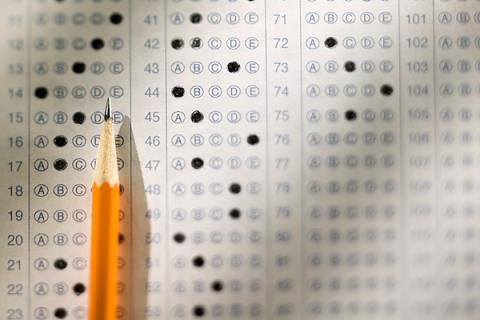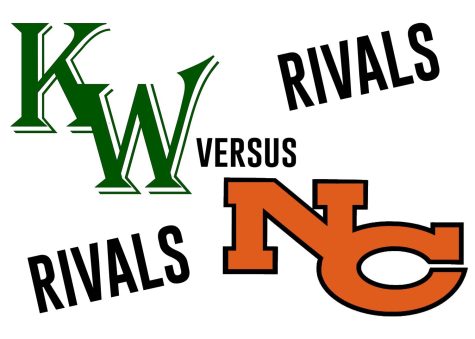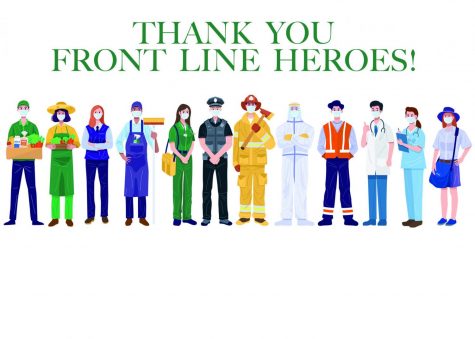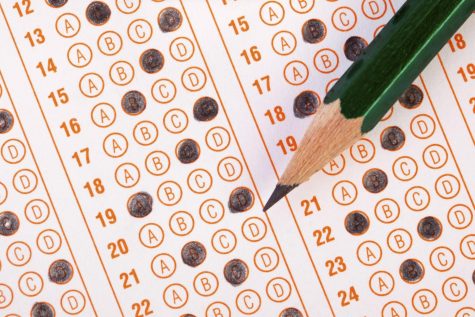Standardized Tests: Good or Bad?

Standardized test and pencil
Standardized tests have been a controversial topic for a while now. Some say they’re beneficial while others strongly disagree. A few are on the fence on whether these measures of a school’s and student’s excellence are good or even accurate. There are many statistics and opinions to support all sides of the argument.
Tess Bjorksten, a freshman here at Kelly Walsh said standardized tests are advantageous, but could be fixed. “They grade kids on their test taking abilities more than anything,” she said.
A KW math teacher, Sue Carlson, thinks standardized tests are not very profitable, and we need less. She said, “One reason they aren’t beneficial is because there is too much of them.”
Only 27% of teachers find standardized tests essential according to ProCon.org.
Lesley Doney, another ninth grader here, thinks standardized tests give us necessary knowledge and skills, “but we spend too much time preparing for them.”
Carlson also believes that testing takes away time from regular classwork. “It’s like they are testing us on the curriculum, but taking away from the curriculum at the same time,” she said.
Some schools, according to ProCon.org, spend 25% of class time just on test prep.
Along with that, Carlson knows standardized tests places stress on herself and other teachers. Doney and Bjorksten, who has an aunt for a teacher, agree.
A study shows 75% of parents say these tests are a solid measure of their student’s academic abilities. However, in 2005, a publishing company had to regrade 98,000 tests from schools in Hawaii for falsely saying students had turned in their test booklets empty.
Another occurrence of inaccurate test grades happened when 178 Atlanta school teachers from 44 different schools corrected student’s answers in order to receive better scores. Also, people who grade open ended questions are only required to have a bachelor’s degree that doesn’t necessarily have anything to do with education.
Carlson believes tests do not accurately rate a student’s mind, but for a different reason. She thinks there are many other factors that go into a student’s test scores other than academic ability. For instance, the kid may have been having a bad week during the time of the test and performed badly because they were preoccupied.
Bjorksten has the opinion that standardized tests also do not totally measure a school’s excellence. “Just because a school’s students didn’t score well doesn’t mean the school is inferior,” she said. At the same time, ProCon.org says 69% of parents think these tests are a good measure of a school’s quality.
China, a country known for having a history of standardized tests, was the top overall country in reading, math and science in 2009. However, Finland topped the charts for international education from 2001-2008 with no external standardized tests that would rank the students or schools.
Standardized testing is and will continue to be an issue many will argue over, and there is truth to both sides. Which side will win in the end?











Bob Salgia • Nov 19, 2015 at 2:47 pm
KNOWLEDGE